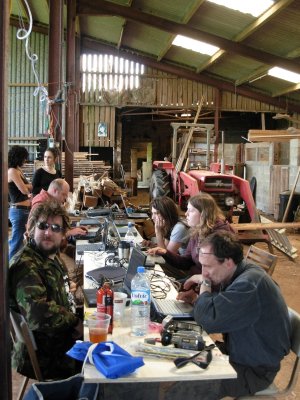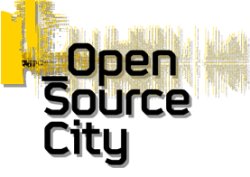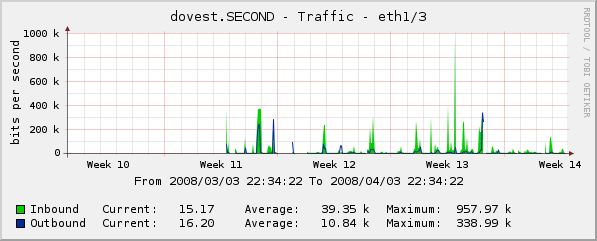Another date for your diaries folks! Richard Blackburn has written to inform us of this year’s UK Embedded Masterclass – a workshop dedicated to using Linux on embedded devices. Working with an ARM processor, the workshop will combine theory and practice and give delegates an insight into the working of Linux in the embedded environment.
Two sessions of the workshop are being held: in London on 8th May 2008, and again in Bristol on 13th May.
“The open source nature of Linux has made it a big hit with engineers,” said event organiser Richard Blackburn. “Being able to get ‘under the bonnet’ of the software holds a lot of attraction for engineers and we have already received a number of registrations for this workshop, places are going fast.”
The workshop will be run by Feabhas, a leader in embedded systems training. Feabhas works with many of the UK’s leading hi-tech development companies and has been at the forefront of using Linux in embedded devices. The workshop will show engineers how to configure a standard Linux kernel for use in a cross development system and the steps to write, compile and download an embedded Linux application with real hardware.
“This is an ideal workshop for engineers wishing to assess the suitability of Linux for their next application or for software engineers who are developing applications for embedded Linux,” said Jo Cooling of Feabhas. “We have been a keen supporter of the Embedded Masterclass since the first event 6 years ago, it will be a good chance for engineers to come along and not only develop new skills but to also explore the latest technologies and learn from industry experts in a non-sales environment.”
Attendees of the Embedded Linux Workshop will need good C programming skills. Some knowledge of operating systems and Unix or Linux commands will be helpful, but not essential. The course presents embedded concepts applied to Linux, using an ARM development board as the target (ConnectCore Wi-9C Digi JumpStart Kit for Linux). The host development system will be a standard PC running Linux. The target will serve as an example of a simple embedded system which can control hardware via a simple digital I/O interface.
The Embedded Masterclass is now in its 6th year, with over 800 embedded engineers having registered for previous events. Each event comprises technical presentations covering issues at the cutting edge of embedded development.
“We want engineers to go away feeling that the whole event has been a productive use of their time,” said Richard. “So we work hard to ensure each presentation imparts really useful knowledge and that each presenter is a true expert in their technology. Often, the presentations can get quite interactive, which is exactly how we want it to be.”
The event also includes a tabletop exhibition. Some of the world’s leading embedded systems tools, hardware and software vendors have already signed up as exhibitors, including MontaVista – a world leader in embedded Linux solutions, Enea – a world leader in operating systems and development tools for mobile phones and wireless infrastructure equipment, SDC Systems – a leading UK supplier of development tools and software testing solutions, Barric – leading UK manufacturer of complex electronics hardware and Telelogic – a world leader in UML system modelling tools.
“The tabletop format for the exhibition has been good for us,” said Richard. “This means that there is more focus on the technology and less on the sales/marketing. It makes for a better environment for engineers to learn about the technology, it simply makes it a lot more friendly and less competitive. As the event has grown, it’s been easier to attract the more important world class players. With people like MontaVista and Enea on board, we feel sure engineers will want to come along and learn about their new offerings.”
The Embedded Masterclass is free to engineers and technology managers. Attendance is limited, so early registration is advised. The Embedded Linux workshop is at a special price of £95; again places are limited and will be allocated on a first come, first served basis. For more information and registration, visit the Embedded Masterclass website or contact Richard Blackburn at Energi – richard (at) energi-tech.co.uk



 HacktionLab aims to be a rural weekend of workshops and gathering together for nerds, hackers and activists to get together and exchange ideas and skills. Some of the workshops include free software video editing, open source streaming, mobile communications using 3G and satellite technologies, LTSP and recycled computers, renewable energy, skill-sharing for video encoding, podcasting and hosting. There will be a shared cost for the event and a fifteen pound donation will be kindly requested.
HacktionLab aims to be a rural weekend of workshops and gathering together for nerds, hackers and activists to get together and exchange ideas and skills. Some of the workshops include free software video editing, open source streaming, mobile communications using 3G and satellite technologies, LTSP and recycled computers, renewable energy, skill-sharing for video encoding, podcasting and hosting. There will be a shared cost for the event and a fifteen pound donation will be kindly requested. Taking place from 20-22nd June, Open Source City is being billed as a “micro-festival of open source practice in the production of media art and music” and is being organised by
Taking place from 20-22nd June, Open Source City is being billed as a “micro-festival of open source practice in the production of media art and music” and is being organised by 
 A date for your diaries: on Sunday 11th May next, Bristol Wireless will be hosting an event entitled ‘The Virtual Commons’ at St Werburghs Community Centre. It will form part of Bristol Radical History Group’s forthcoming ‘Down With The Fences’ programme, which runs from Thursday May 1st to Sunday May 11th 2008.
A date for your diaries: on Sunday 11th May next, Bristol Wireless will be hosting an event entitled ‘The Virtual Commons’ at St Werburghs Community Centre. It will form part of Bristol Radical History Group’s forthcoming ‘Down With The Fences’ programme, which runs from Thursday May 1st to Sunday May 11th 2008. 








 Every year Germany’s
Every year Germany’s